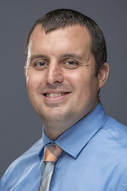Northwords
|
|
|
|
|
“Tell us…in your own words.” Do you have your own words? Personally, I’m using the ones everybody else has been using. Next time they tell you to say something in your own words, say, “Nigflot blorny quando floon.” --George Carlin Carlin is referencing something that is obvious upon reflection but rarely reflected upon: we get our words from the words of others. Our words are not entirely our own. This interesting nugget of information often falls to the wayside when we speak to our students about plagiarism and citing the work of others. We try to provide students with some clear, unambiguous guidelines for how to take up the work of others in our own writing. But the complicated nature of referencing others refuses to obey those guidelines, leaving us in the awkward position of trying to enforce guidelines that may sometimes create more problems than they solve. Attempts to simplify this process go far beyond the classroom teacher: a check for “plagiarism statement” on Google reveals a plethora of statements from a variety of universities across the world that fail to take into account the reality of language that Carlin identifies. The University of Liverpool asks students to sign a statement that begins “This project was written by me and in my own words, except for quotations from published and unpublished sources which are clearly indicated and acknowledged as such.” Northern Illinois University’s first-year composition program defines plagiarism “simply” as “taking someone else’s words or ideas and representing them as being your own.” These statements make things sound far more straightforward than they really are. Consider the first sentence of the above paragraph, for example. Is that sentence in my own words? Are the ideas mine or someone else’s? Well, the idea of checking Google for “plagiarism statement” emerged from a conversation with a colleague in August. Everything after the colon is something that has been said before in a recent book, Naming What We Know, and also in several publications by Mikhail Bakhtin. I even chose the word “plethora” because dialogue from The Three Amigos was bouncing around in my head. Are those words, then, actually mine? Have I been using the words of others and “representing them as [my] own”? Or, expecting my audience to understand my references, did I simply fail to appreciate the audience this might reach? And, if I did fail in that regard, have I now committed plagiarism, or have I been exonerated by the above paragraph? I am not arguing that we should be inattentive to deliberate plagiarism—what Rebecca Moore Howard of The Citation Project refers to as fraud and insists is something to “go right on getting angry about” (Howard 2000, p. 1219)—but rather that we should not attempt to paper over the complexities of communicating our ideas with others through writing. All we do with simplistic statements of plagiarism is imply that working with the sources and ideas of others is easy, and that communicating that work to an audience is simple, when neither is, in fact, the case. It is difficult work that requires time, attention, care, and continual discussion. There are many ways to talk to our students about plagiarism that can help them develop the ways in which they use and reference sources. We can talk about insufficient citations (Howard, 2000), patchwriting, or perhaps integrating quotes as ways of describing this complex work and making that complexity something to be embraced and explored. Our students are not just learning to write—they are remaking the language as they use it, carrying fragments and versions of our thoughts, understandings, and ideologies into the future with that use. Finding more ways to discuss students’ language choices with them not only supports their own reflective awareness of language use, but makes us more sensitive to the logic and understandings that students bring with them to the difficult academic work that we ask them to do.  Ryan J. Dippre is an assistant professor of English and the Director of College Composition at the University of Maine. Before graduate school sapped him of his youth and vitality, Ryan was a high school English teacher and football coach in northeastern Pennsylvania.
0 Comments
Your comment will be posted after it is approved.
Leave a Reply. |
MCELAprovides Maine teachers of English language arts with opportunities to reflect upon and improve their teaching practices. Archives
September 2023
Categories |
